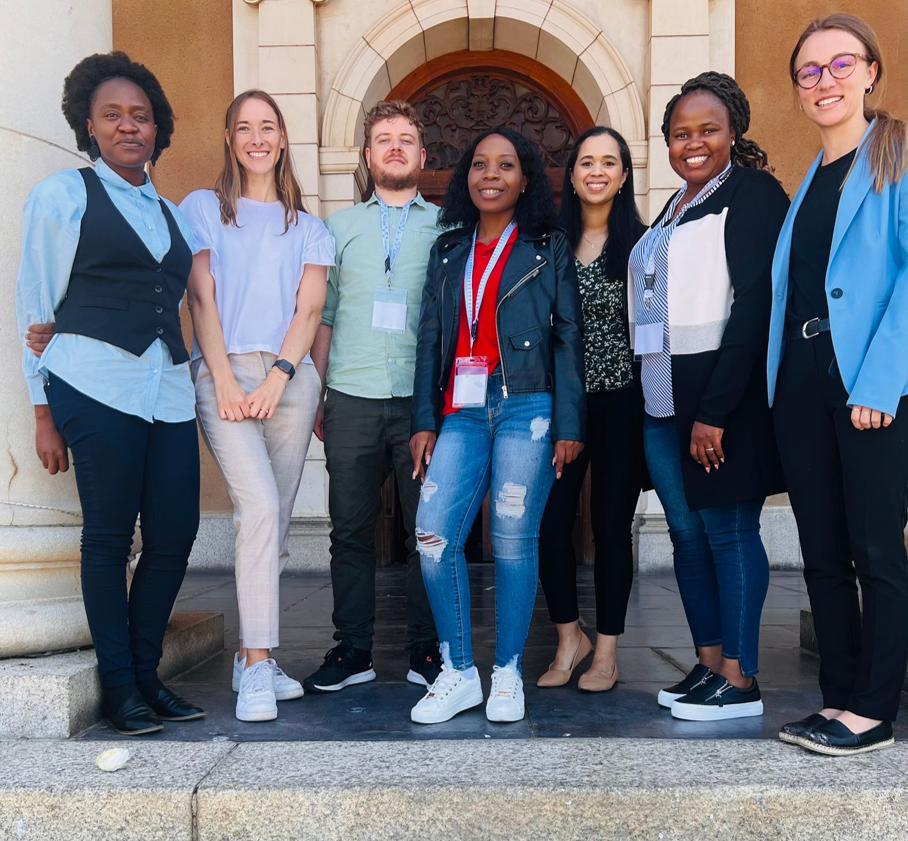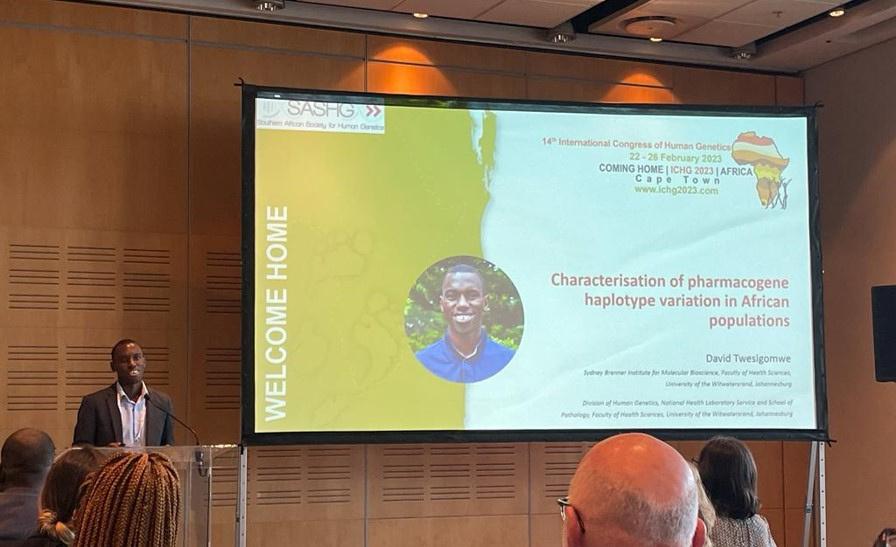
2 minute read
Wits’ young human genetics scientists excel at the YIF2023
In February 2023, researchers and scientists from the Wits Division of Human Genetics attended the Young Investigators Forum The young scientists from the Division of Human Genetics presented their research projects. A summary on each of the presentations is provided below
Dr David Twesigomwe was awarded the Best oral presentation the Wits-H3Africa/GSK ADME collaboration. The talk also highlighted the utility of StellarPGx, a novel pharmacogenomics analysis pipeline developed at the SBIMB
The findings of this research underscore the need for investigating pharmacogene variation in the African context to reliably inform clinical pharmacogenomics implementation in Africa This will in turn contribute to mitigating the risk of adverse drug reactions and promoting treatment efficacy in clinical settings
*Read the full study
Prenatal Genetic Counselling Services in Johannesburg
Dr Twesigomwe, a postdoctoral fellow at the Sydney Brenner Institute for Molecular Bioscience (SBIMB) presented his PhD research titled “Characterisation of pharmacogene haplotype variation in African populations"

His research set out to characterize the variation in genes that encode key drug-metabolizing enzymes (such as CYP2D6) across African populations, which have been vastly underrepresented in pharmacogenomics to date
At the conference, Dr Twesigomwe’s talk highlighted frequencies of known star alleles (haplotypes) in CYP2D6, CYP2B6, and CYP2A6, as well as information on novel African-ancestry star alleles identified under
Elzette Nienaber, Wits lecturer and registered Genetic Counsellor at (NHLS) presented a poster at the conference for her research work titled Elzette Nienaber “Prenatal genetic counselling services in a Johannesburg healthcare setting: An overview”.
This study aimed to evaluate and assess the prenatal genetic service provided by genetic counsellors from the Division of Human Genetics at the NHLS/Wits
Genetic counselling clinic records were retrospectively analysed from July 2019 to June 2022 to examine the reason for referral, ultrasound screening outcome and uptake of invasive testing
The findings of this study emphasize the value of prenatal genetic counselling services and highlight areas to address which can improve the overall service
Pharmacogenetic Variation in Sub-Saharan Africa
Blessing Rotondwa Sitabule, a PhD candidate in the School of Pathology presented a poster titled “Structural Bioinformatics Analysis of CYP2D6 Pharmacogenetic Variation Relevant to Sub-Saharan African Populations”
The project focused on assessing the potential impact of missense variants on the CYP2D6 enzyme using structural bioinformatics methods such as molecular dynamics and Structural Workflow for Annotating ADME gene Targets (SWAAT) The research showed how variants such as T107I (forms part of the *17 allele which is prevalent in Africa) and V338M (forms part of the *29 allele which is prevalent in Africa) influence the stability and mobility of the enzyme These may have implications for the efficiency of the enzyme which may explain the differences in drug response as a result of genetic variation.
Paediatric Liver Transplants
Caitlin Wheeler presented her MSc research titled “Impact of donor CYP3A5 genotype on pharmacokinetics of tacrolimus in South African paediatric liver transplant patients” as a poster and a speed talk at the conference
Her study focused on the optimal therapeutic drug levels of tacrolimus, and immunosuppressants being critical for preventing solid organ rejection, especially in paediatric liver transplant recipients Pharmacogenetic research suggests that SNPs within CYP3A5 contribute towards the specific inter-patient tacrolimus dosing requirements observed in transplant clinics This study aimed to compare the pharmacokinetics of tacrolimus for paediatric liver transplant patients to the donors’ CYP3A5 genotypes in a South African context considering donor and recipient characteristics.










